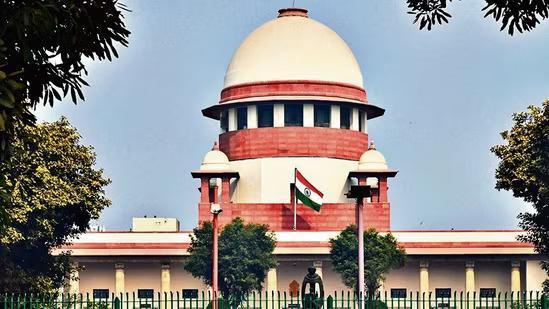
No Action Against Owners of 10 & 15-yr-old Diesel & Petrol Vehicles for 4 Weeks: SC
The Supreme Court has passed a significant order in response to an application filed by the Delhi government, which challenged the ban on over 10-year-old diesel and 15-year-old petrol vehicles in the city as a pollution control measure. The court has ruled that no “coercive” action will be taken against the owners of these vehicles for a period of four weeks.
The ban on old vehicles was implemented by the Delhi government in a bid to reduce the city’s alarming pollution levels. However, the move faced resistance from vehicle owners who argued that the ban was arbitrary and violative of their fundamental rights. The Delhi government, in turn, argued that the ban was necessary to protect the environment and public health.
The Supreme Court’s order comes as a breather for the owners of old vehicles, who were facing the threat of having their vehicles seized or fined if they were found to be on the road. The court’s decision to stay the ban for four weeks gives the owners of old vehicles some respite, at least for the time being.
The Supreme Court’s order is seen as a significant victory for the owners of old vehicles, who were worried about the financial implications of having their vehicles seized or fined. The ban on old vehicles had already led to a significant decline in the number of vehicles on the road, which in turn had led to a reduction in traffic congestion and air pollution.
However, the Supreme Court’s decision is not without its limitations. While the court has stayed the ban for four weeks, it has not ruled out the possibility of the ban being reimposed later. The court has given the Delhi government four weeks to come up with a more effective plan to reduce pollution in the city, which could potentially include the imposition of a ban on old vehicles.
The Supreme Court’s order is also seen as a setback for the Delhi government’s efforts to reduce pollution in the city. The government had argued that the ban on old vehicles was necessary to protect the environment and public health, but the court’s decision has thrown a spanner in the works.
The court’s decision to stay the ban is also seen as a reflection of the complexities of the issue. On the one hand, the Delhi government has a legitimate concern about the impact of old vehicles on air pollution in the city. On the other hand, the owners of old vehicles have a legitimate concern about their fundamental rights being violated.
The Supreme Court’s order is also seen as a reflection of the need for a more nuanced approach to addressing the issue of pollution in the city. The court has given the Delhi government four weeks to come up with a more effective plan to reduce pollution in the city, which could potentially include the imposition of a ban on old vehicles.
In conclusion, the Supreme Court’s order is a significant development in the ongoing debate over the ban on old vehicles in Delhi. While the court’s decision to stay the ban for four weeks gives the owners of old vehicles some respite, it also highlights the need for a more nuanced approach to addressing the issue of pollution in the city. The Delhi government has four weeks to come up with a more effective plan to reduce pollution in the city, which could potentially include the imposition of a ban on old vehicles.






